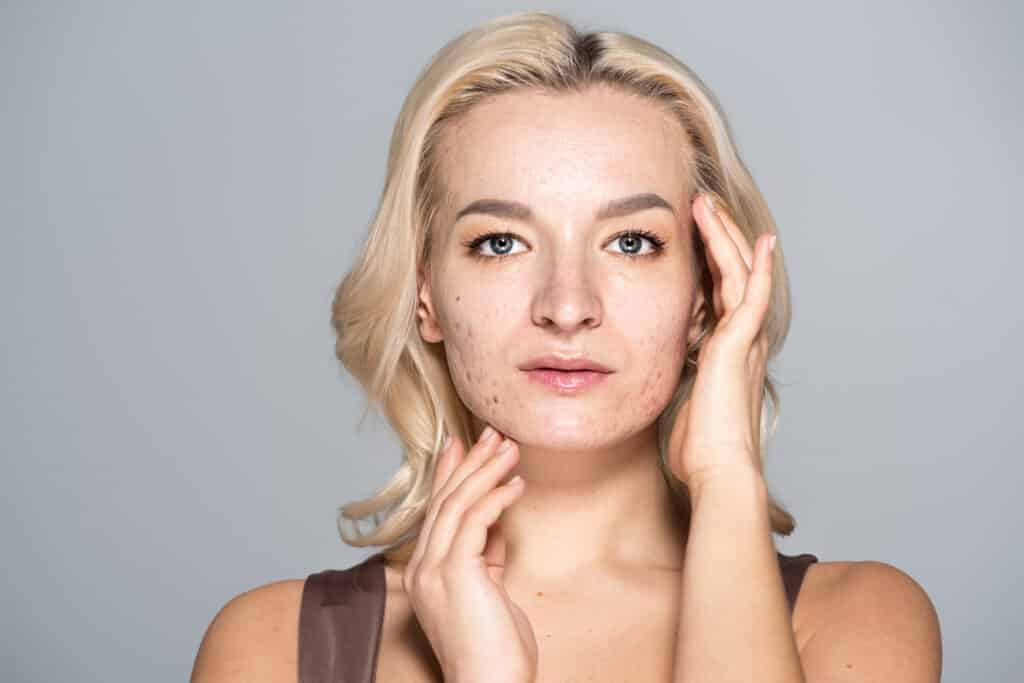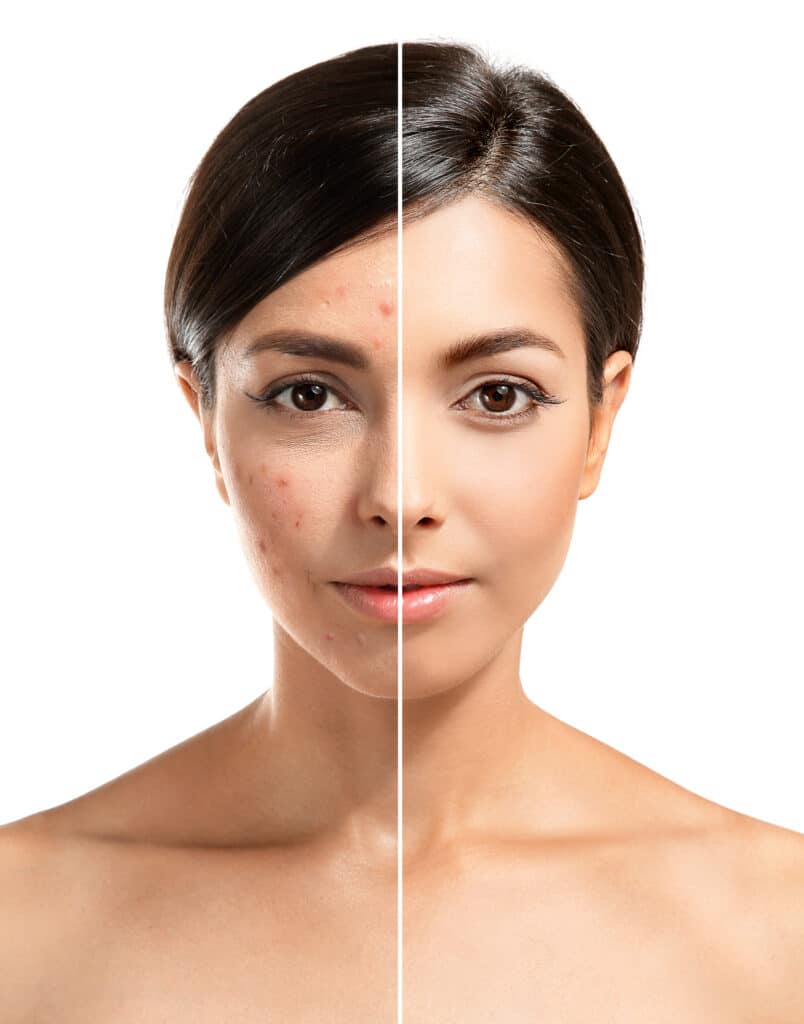
Acne is a pervasive concern that affects almost everyone at various stages of their life, causing not only physical discomfort but also impacting self-esteem and confidence. Acne can occur for many reasons, including hormonal changes.
At Regeneration Health, we understand that acne can be particularly challenging, especially when it’s related to hormonal imbalances. In this blog post, we’ll discuss the causes of hormonal acne and explore possible treatment options, shedding light on the role hormone replacement therapy can play in skin health.
Understanding Hormonal Acne
Unlike other types of acne triggered by external factors like bacteria or clogged pores, hormonal acne is closely tied to fluctuations in hormone levels throughout the body. Androgens, a group of sex hormones including testosterone, are primarily responsible for hormonal acne. These hormones stimulate the sebaceous glands, which are microscopic glands found in your hair follicles, to produce excess sebum, an oily substance that can clog pores and promote the growth of acne-causing bacteria.

Causes of Hormonal Acne
You may associate hormonal acne with adolescents, but in reality, it can occur at any stage of life. Some causes of hormonal acne include:
- Puberty: As adolescents experience a surge in androgen levels, their skin produces more oil, making them more susceptible to breaking out. As the body adjusts to these hormonal changes, teens may experience acne on their face, chest, or back.
- Menstruation: Women may find that they break out at certain points of their menstrual cycle due to fluctuations in progesterone and estrogen. The premenstrual phase, especially, can trigger acne due to an increase in androgens.
- Pregnancy: The significant hormonal shifts that occur during pregnancy can contribute to acne development; however, some women actually experience clearer skin while pregnant.
- Polycystic ovary syndrome: The elevated androgen levels associated with PCOS can cause women to have persistent acne, along with other symptoms.
- Menopause: As women approach menopause, their estrogen levels decline, leading to an imbalance between estrogen and androgens. This shift can cause breakouts in menopausal women.
- Genetics: An individual’s genetic makeup can influence their hormones, making them more or less likely to develop hormonal acne at some point in their lives.
- High testosterone: Men who have abnormally high levels of testosterone may be more susceptible to hormone-related breakouts. In addition, men whose testosterone levels are within the normal range but whose skin has a higher density of testosterone receptors may also experience increased acne.
- Sebaceous glands: Typically, men have more sebaceous glands per hair follicle on their chest, back, and shoulders, leading to increased sebum production and acne formation.

Transformative Treatments
Acne is notoriously difficult to treat, but if you’re experiencing hormone-related breakouts, there are numerous things you can do to help clear up your skin. Often, dermatologists or other healthcare professionals may recommend more than one treatment, and you may have to try multiple approaches to find the one that works best for you.
Topical Treatments
Dermatologists often recommend topical treatments that contain active ingredients such as benzoyl peroxide, retinoids, or salicylic acid to address various types of acne. These products work by reducing inflammation, unclogging pores, and reducing sebum production.
Oral Medications
In more severe cases, oral medication, including antibiotics, oral contraceptives, or anti-androgen drugs, can be used to help regulate hormone levels and control oil production. These medications can have adverse side effects, though, so your doctor will help you weigh the benefits and drawbacks before you try these treatments.
Lifestyle Modifications
Healthy lifestyle choices can provide relief from hormonal acne. Exercising, eating a balanced diet, and managing stress contribute to hormonal balance, skin health, and overall wellness. Your doctor can recommend specific lifestyle modifications to fit your unique needs.
The Role of Hormone Replacement Therapy
If you’re struggling with persistent acne caused by hormonal imbalances, hormone replacement therapy can be an effective solution. This treatment involves supplementing the body’s natural hormone levels to restore balance. Hormone replacement therapy can be particularly advantageous for women experiencing acne related to menopause, PCOS, or other hormonal disorders.
Estrogen Replacement
As a woman’s estrogen levels decline during menopause, estrogen replacement therapy can help alleviate hormonal acne. Estrogen contributes to skin elasticity, regulates sebum production, and promotes an overall healthier complexion.
Ando-Androgen Therapy
Anti-androgen medications are often utilized as part of hormone replacement therapy. By inhibiting the effects of androgens, these medications contribute to sebum regulation and can prevent breakouts.
Achieve Clearer Skin With Regeneration Health
If you’re experiencing symptoms of a hormonal imbalance, trust the expert healthcare providers at Regeneration Health to help you achieve clearer skin and enhanced overall well-being. Our innovative hormone replacement treatments can be an effective stepping stone on your journey to becoming a healthier version of you.


